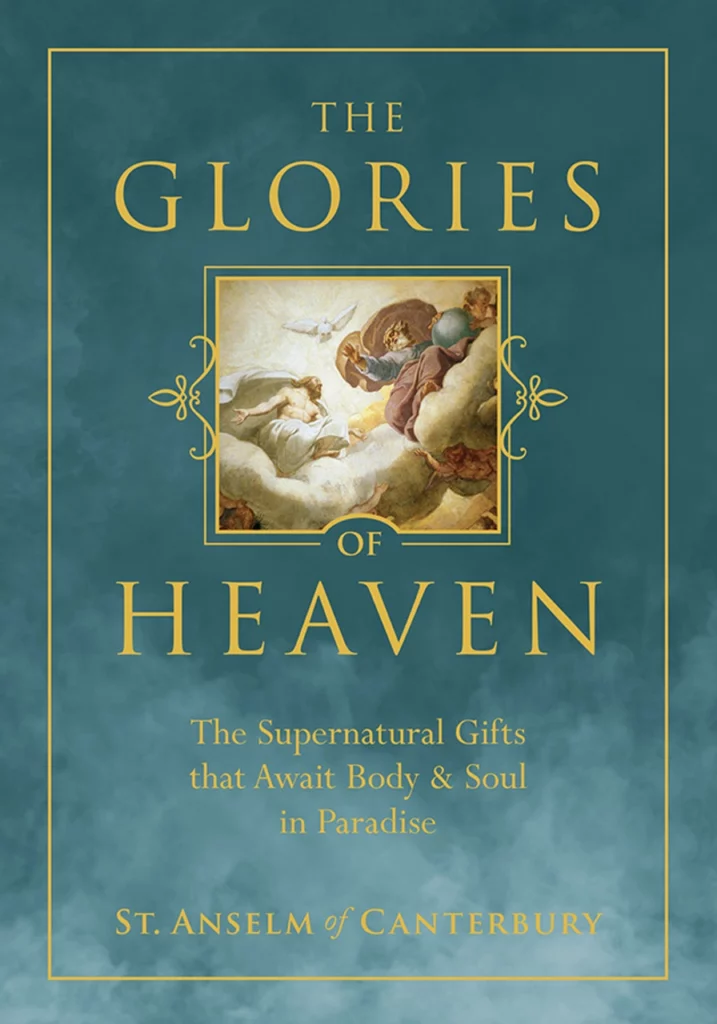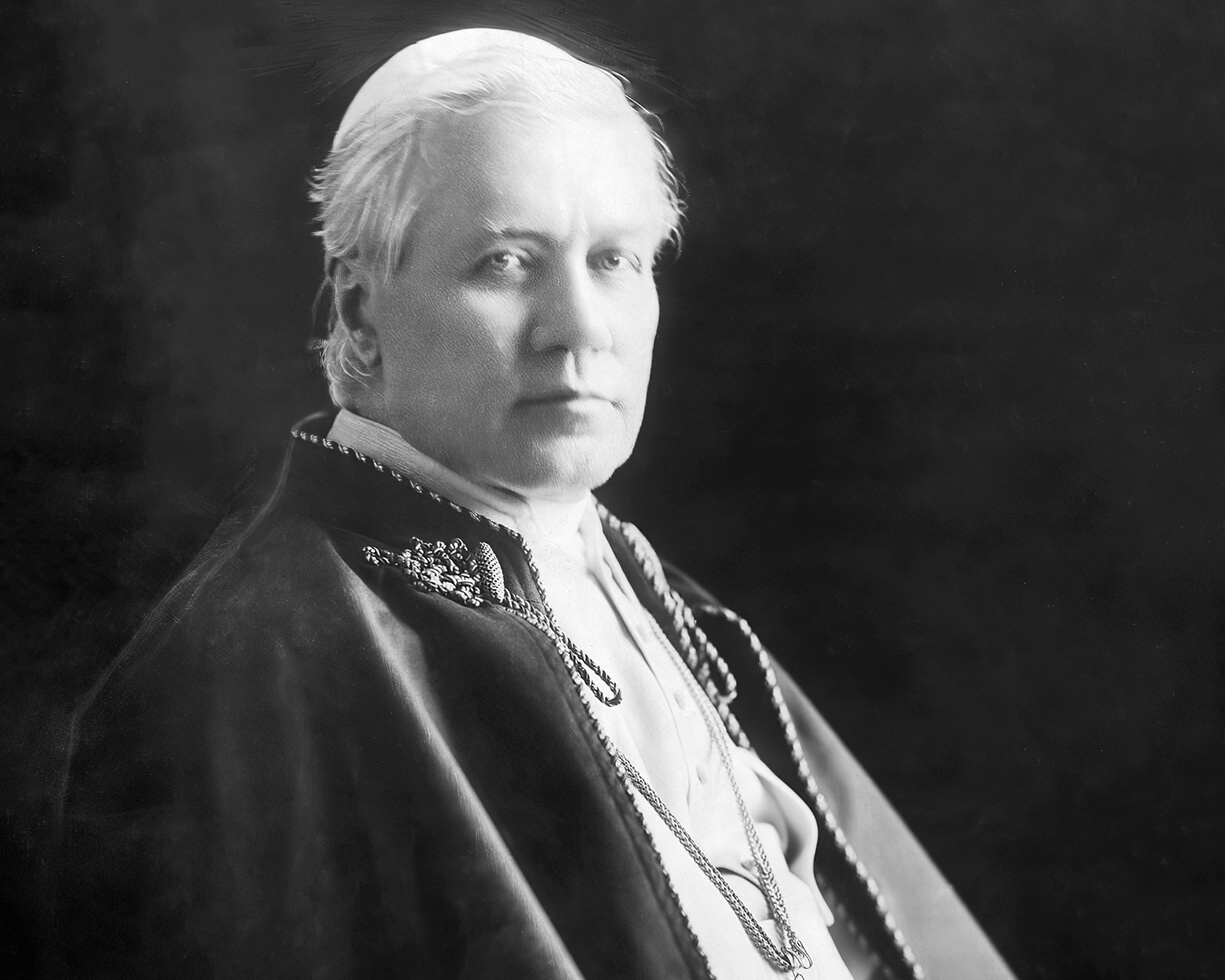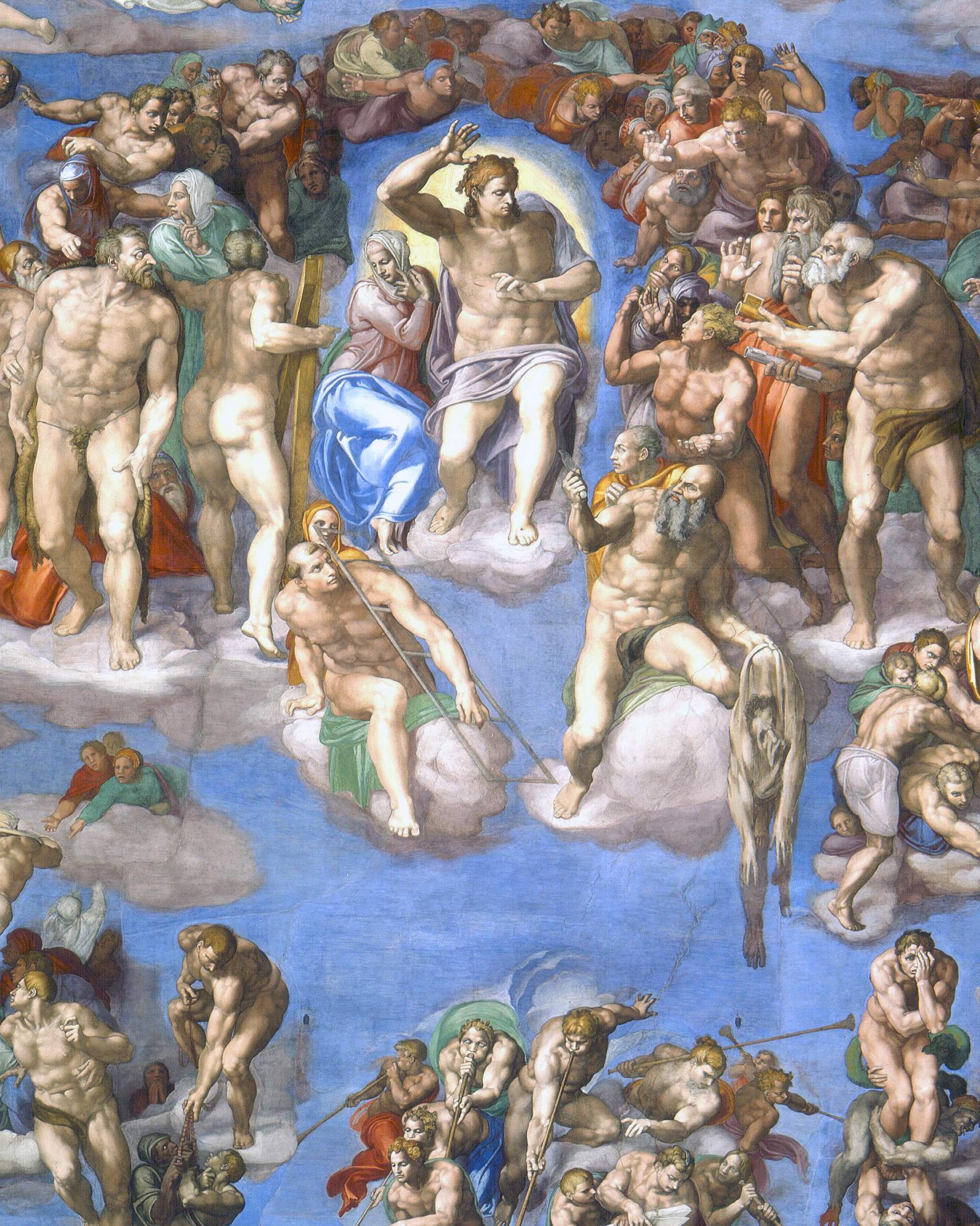No one can fathom the joy that awaits us in Heaven. Here, Saint Anslem of Canterbury reflects on the pleasures of Heaven and the indescribable sweetness that we shall experience upon our entrance into God’s kingdom.
A Definition Of “Pleasure”
We call “pleasure” all of those things which cause delight to the physical senses. And these are certainly loved and desired by all human beings. For each of the physical senses naturally strives after and yearns for those things which bring it delight or comfort. As examples of this, the sense of smell takes pleasure in sweet and rare fragrances, and the sense of taste enjoys experiencing fine flavors. Each of the other senses—sight, vision, and touch—is similarly attracted to those things which correspond to its capacities and propensities and cause it delight. The attractions to those things which delight the senses are what constitute the natural appetites of the human being.
Everlasting Delight
Yet such delights will not always bring delight, and such pleasures will not forever bring pleasure. For after a certain period, even those who love them most will encounter a feeling of satiety, and then boredom or revulsion. For, by their very nature, their capacity to satisfy is transitory, and they appeal to the merely animal part of our nature. Yet those pleasures which the just shall enjoy to the full in the world to come will be everlasting. They shall appeal not to the lower physical senses only but also to the higher mental and spiritual faculties. Since they are so different from our present pleasures, I cannot see how anyone can learn what the delights of heaven will really be like. For nothing that we experience here on earth could ever suffice to give us an example of their nature.
The pleasures we will possess in heaven are of such a kind that the more they are experienced, the more fervently shall one desire them. For, since they are perfect in nature, they shall bring satisfaction and yet never give rise to any boredom or tedium. I believe that there is no one living, or no one who has ever lived, who would not prefer the taste and experience of these perfect heavenly delights than any earthly pleasure whatsoever!
Two Forms Of Beatitude
There are two forms of beatitude, and similarly two forms of misery. One of these forms of beatitude is greater and one is lesser. Similarly, one of the forms of misery is greater and the other is lesser. The greater beatitude is that which is enjoyed by the angels and souls of the blessed in the kingdom of God. The lesser beatitude was the happiness which was experienced in the garden of Eden, the earthly paradise in which Adam was first located.
The greater of the miseries is that of the eternal fires of hell. The lesser of the miseries consists in the sufferings and tribulations which we incessantly undergo in this passing mortal life.
None of us have ever experienced either the greater or the lesser form of beatitude since we have never dwelt either in the kingdom of heaven nor in the garden of Eden. But if we had experienced the lesser beatitude—that is the earthly paradise—perhaps through this we would be able to imagine the pleasures of the greater beatitude of heaven. All of us have experienced the lesser from of misery—that is, the sufferings of this earthly exile—into which we were all born and have been raised and now dwell. And, on the basis of these present miseries, we can fairly easily imagine the greater miseries of hell, and can easily speak of them and explicate them whenever we wish.
Indescribable Sweetness
It is to be noted, though, that the pleasure of heaven of which we now speak is merely one portion of the greater beatitude of the kingdom of God. I do not see how I can try to explain this except perhaps through a similitude based on the opposite phenomenon—that is, pain. Imagine in your mind a human being, and then imagine that burning, red-hot irons are applied to the pupils of his eyes and to his other members. Think of the great pain he will experience—how agony shall suffuse his whole body so that neither the marrow of his bones nor his intestines nor any part of him shall be free from the most extreme discomfort. How could we describe the condition of such a person? He is thoroughly tormented; he will be completely filled with agony and utterly overcome with anguish.
In a similar, but opposite, way, in the future life of heaven, ineffable pleasure shall completely inebriate and saturate those who are saved. An unimaginable outflowing of delight shall fill them and all their senses with the most indescribable sweetness. The eyes, the ears, the nostrils, the mouth, the hands, the feet, the throat, the heart, the loins, the lungs, the bones, and even the very marrow of the bones shall all experience the plentitude of ecstasy. Each of the senses and parts of the body shall enjoy this plenitude individually, and also all of the senses and the whole body will enjoy it in its supreme totality. This delight of the senses shall be of a miraculous sweetness and marvelous delight, such that the entire human being will drink deeply from the crystalline stream of celestial pleasure and be utterly and gloriously inebriated by its all-surpassing fullness!
ooo
This article is taken from a chapter in The Glories of Heaven by St. Anselm of Canterbury which is available from TAN Books.









